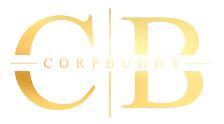COPYRIGHT OBJECTIONS – FILE AN EFFECTIVE REPLY AND PROTECT YOUR WORK.
Copyright is a legal right that protects the original creations of writers, artists, musicians, filmmakers, and other creators. It gives you complete control over how your work is used, shared, or reproduced by others.
When you register your copyright, you ensure that your creative work cannot be copied, published, or used without your permission. It’s a way of legally safeguarding your creativity and getting due recognition for your effort.
UNDERSTANDING COPYRIGHT IN INDIA:
Copyright law in India is governed by the Copyright Act, 1957. Once a work is registered, it cannot be reproduced or modified by anyone else without the creator’s consent. The creator also has the right to earn from the use or licensing of their work.
Generally, copyright protection lasts for the creator’s lifetime plus 60 years, ensuring long-term protection of intellectual property.
WHO CAN APPLY FOR COPYRIGHT?
Copyright registration is available for a wide range of creative works, such as:
- Literary, Dramatic, Musical, and Artistic Works – Books, poems, paintings, songs, scripts, and sculptures.
- Cinematographic Films – Movies, short films, documentaries, and video recordings.
- Sound Recordings – Music albums, podcasts, and other audio content.
Each of these works gets protection under specific provisions of the Copyright Act.
WHY COPYRIGHT REGISTRATION IS IMPORTANT:
While copyright exists automatically upon creation, registering it provides strong legal proof of ownership and makes it easier to take legal action against misuse.
Benefits include:
· Legal Protection: Helps stop unauthorized copying or misuse of your work.
· Proof of Ownership: Creates an official public record that establishes you as the rightful owner.
· Exclusive Rights: Gives you the right to reproduce, adapt, distribute, and communicate your work to the public.
· Market Recognition: Builds credibility and strengthens your creative brand.
VALIDITY OF COPYRIGHT PROTECTION
The duration of copyright protection depends on the type of work:
· Literary, Musical, Artistic, and Dramatic Works: Creator’s lifetime + 60 years.
· Cinematographic Films and Sound Recordings: 60 years from the year of publication.
· Government or Anonymous Works: 60 years from publication.
This ensures long-term protection and allows your legal heirs to benefit from your creative efforts.
WHAT HAPPENS IF COPYRIGHT IS INFRINGED
Copyright infringement using or copying a protected work without permission is a punishable offence under Section 63 of the Copyright Act.
Penalties can include:
· Imprisonment up to 6 months, and/or
· A fine up to ₹50,000.
Police officers can also seize infringing copies without a warrant.
COPYRIGHT OBJECTIONS – HOW TO HANDLE THEM:
During the registration process, the Registrar may raise an objection if:
· Your work appears similar to an existing one.
· The application contains incomplete or unclear information.
· Conflicts exist regarding ownership or originality.
These objections are usually raised within 30 days of filing the application.
If you receive an objection, it’s crucial to reply within the given time (usually 30 days). Failing to respond can result in your application being marked as “rejected” in the copyright journal.
A strong and well-drafted reply clarifies your position, addresses concerns, and ensures your application continues smoothly. Legal expertise is highly recommended for drafting this reply to avoid rejection.
RIGHTS OF A COPYRIGHT OWNER
Once registered, copyright owners enjoy several exclusive rights, including:
- Right of Reproduction: No one can copy your work without your permission.
- Right of Adaptation: You can modify or create new versions of your own work.
- Right of Public Communication: You can share or broadcast your work publicly.
- Right of Public Performance: Artists and musicians can perform their works in public.
- Moral Rights: You have the right to be credited as the creator and prevent any distortion of your work.
- Right of Distribution: You can sell, license, or transfer rights to your work.
These rights ensure complete control over how your creation is used and monetized.
FAIR USE – WHEN COPYRIGHTED WORK CAN BE USED WITHOUT PERMISSION
Certain limited uses are allowed under “fair use” exceptions, such as:
· For research or private study.
· For criticism or review.
· During judicial proceedings.
· By non-profit clubs or institutions for non-commercial performances.
· For education or library use.
These exceptions balance public interest with creators’ rights.
WHY PROFESSIONAL HELP MATTERS
Replying to a copyright objection or completing registration correctly requires legal knowledge and precision. A professionally drafted reply ensures your creative work stays protected and your application doesn’t get rejected.
Our team assists with:
· Reviewing objection notices
· Drafting detailed, accurate replies
· Representing you in hearings if required
· Ensuring smooth and fast registration
Secure your creativity, protect your rights, and keep your ownership legally recognized.
